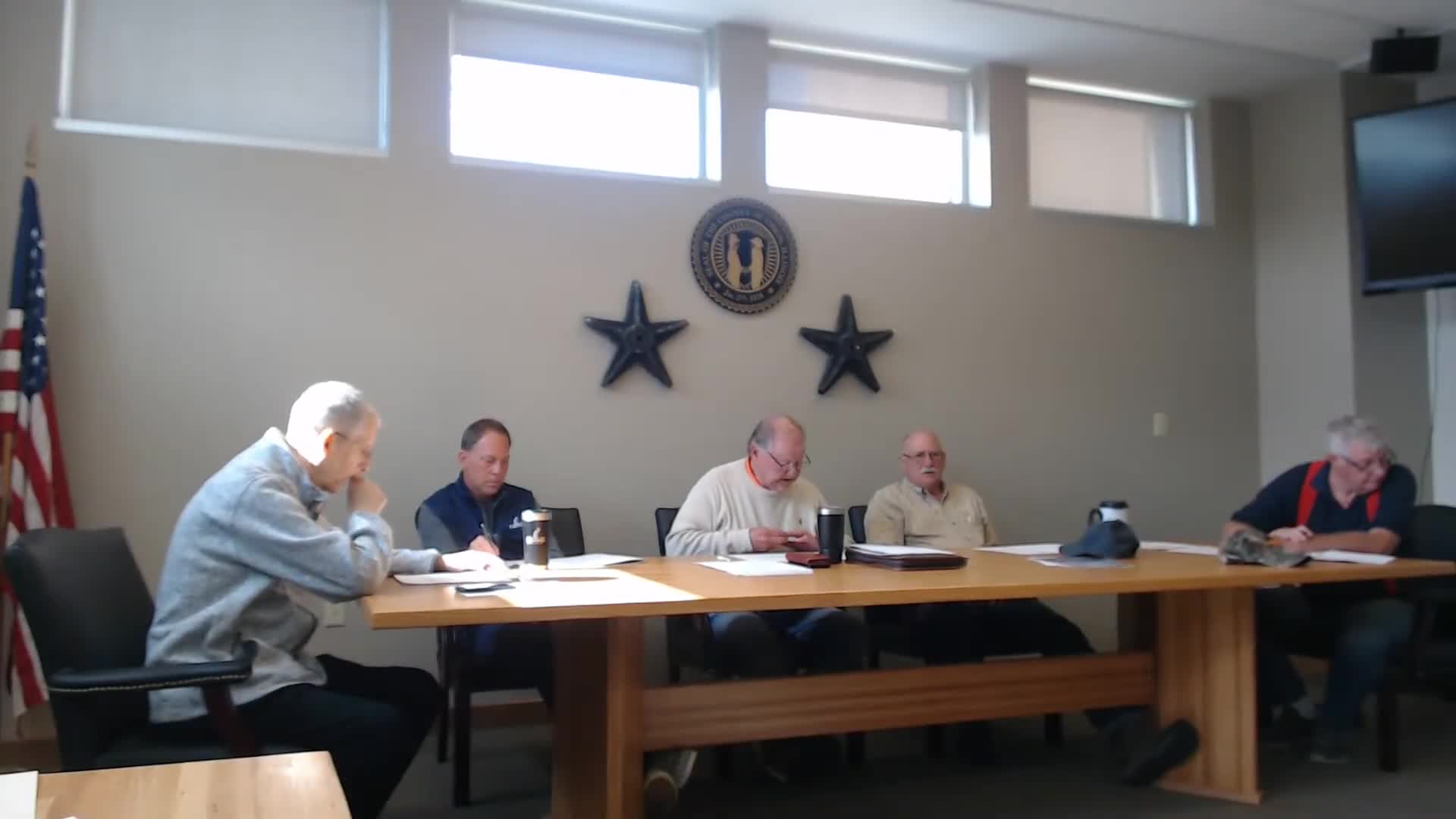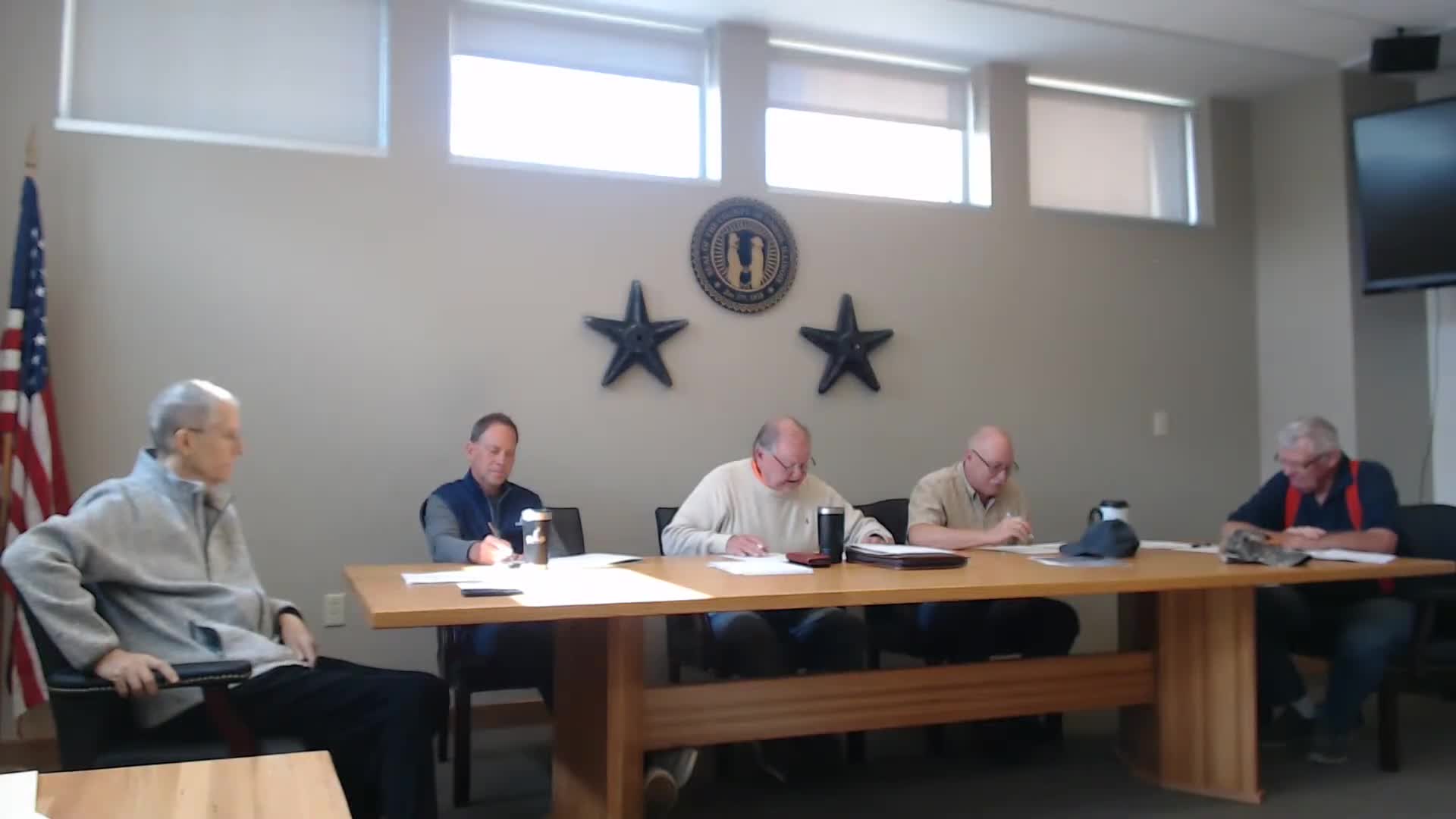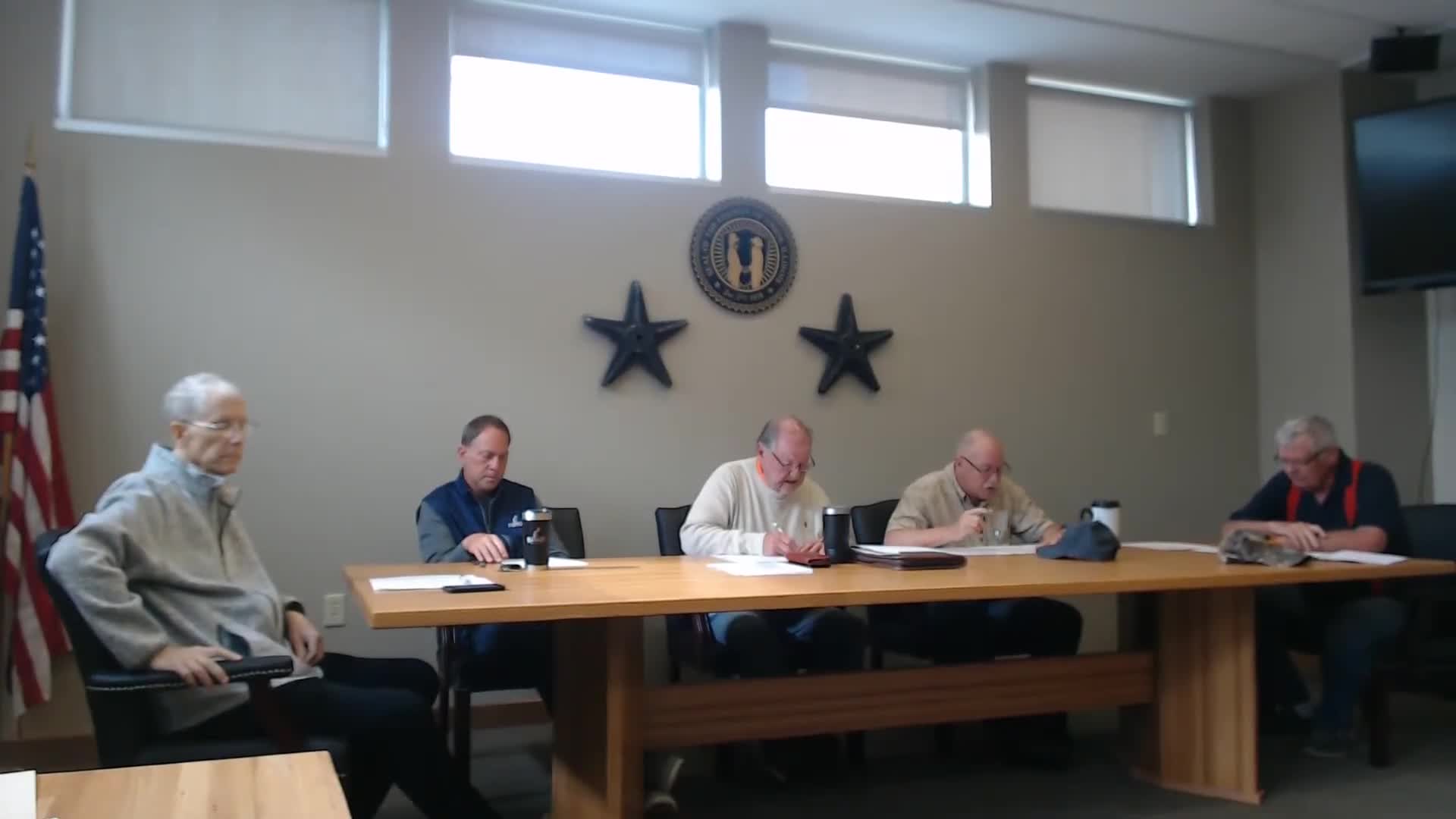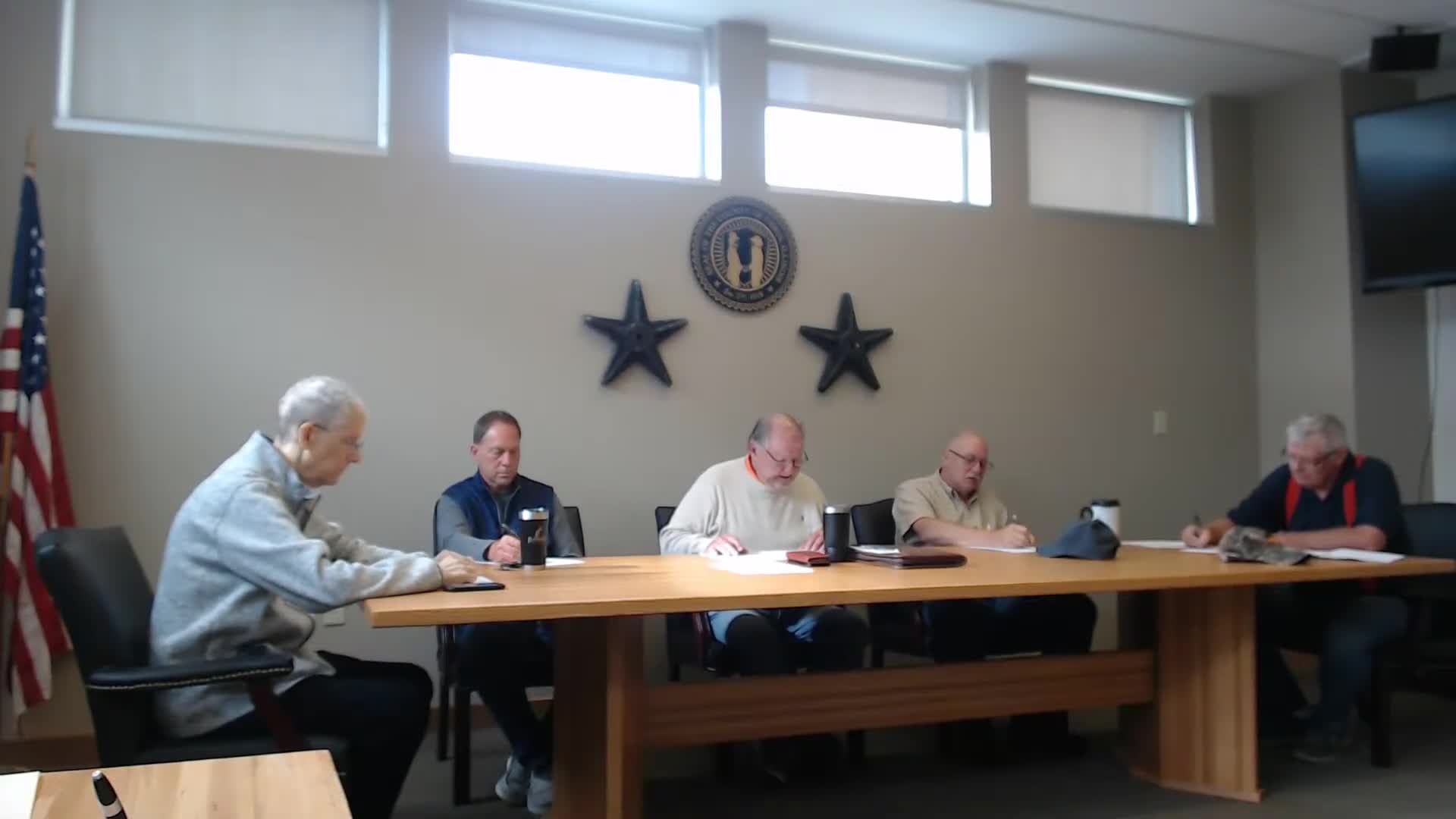Article not found
This article is no longer available. But don't worry—we've gathered other articles that discuss the same topic.

Commissioners decline requests for highway crews to work on private cemetery projects, citing liability and policy

Board appoints Chris Boyd to Union County Hospital District following Raleigh Hawk's death

University of Illinois Extension presents annual report; county to sign local agreement

